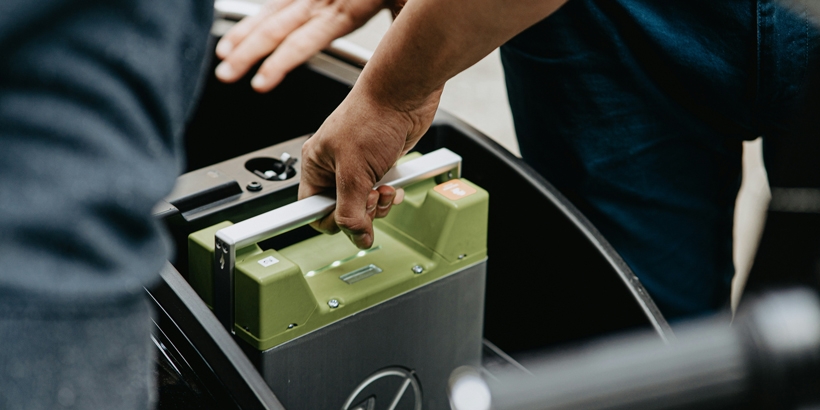Once you have your solar panels installed, you may wonder: What now? Solar panels are an excellent investment, and for further benefits, you could consider adding a solar backup battery to your solar panel system. By combining the backup battery with your solar panels. Adding battery storage can significantly enhance the benefits of your solar setup, providing greater energy independence, increased savings, and improved resilience. Here’s a comprehensive guide to why and how you can add batteries to your existing solar system.
Why Add Batteries to Your Solar System?
- Energy Independence: Batteries allow you to store excess solar energy generated during the day for use at night or during cloudy periods. This reduces your reliance on the grid and ensures a continuous power supply even when the sun isn’t shining.
- Cost Savings: By storing and using your own solar energy, you can reduce your electricity bills. During peak hours when electricity rates are high, you can use the stored energy instead of drawing power from the grid, leading to significant cost savings.
- Backup Power: In areas prone to power outages, having a battery backup can be invaluable. It provides a reliable source of power during emergencies, ensuring that essential appliances and devices remain operational.
- Maximizing Solar Investment: Adding batteries can help you make the most of your solar investment. Instead of sending excess energy back to the grid for minimal compensation, you can store it and use it when needed, maximizing the return on your solar investment.
- Environmental Benefits: Using stored solar energy reduces the need for fossil fuel-generated electricity, thereby lowering your carbon footprint and contributing to a more sustainable environment.

How to Add Batteries to Your Existing Solar System
- Assess Your Energy Needs: Begin by evaluating your energy consumption patterns. Determine how much energy you need to store and use during non-sunny periods. This will help you choose the right battery size and capacity.
- Select the Right Battery Type: There are various types of batteries available, including lithium-ion, lead-acid, and flow batteries. Lithium-ion batteries are the most popular choice due to their efficiency, long lifespan, and compact size. Consult with a professional to select the battery type that best suits your needs and budget.
- Check Compatibility: Ensure that the battery system you choose is compatible with your existing solar setup. Some inverters are designed to work seamlessly with specific battery types. If necessary, you may need to upgrade your inverter to a hybrid model that supports battery storage.
- Professional Installation: Adding batteries to your solar system is a complex process that should be handled by professionals. A certified installer will ensure that the batteries are properly integrated with your existing system, adhere to safety standards, and operate efficiently.
- Monitor and Maintain: Once the batteries are installed, it’s important to monitor their performance regularly. Many battery systems come with monitoring software that allows you to track energy production, storage, and usage. Regular maintenance checks will also help ensure the longevity and efficiency of your battery system.
Choosing the Right Battery Storage System
When selecting a battery storage system, consider the following factors:
- Capacity: The amount of energy the battery can store, usually measured in kilowatt-hours (kWh).
- Power Output: The maximum amount of power the battery can deliver at one time, measured in kilowatts (kW).
- Efficiency: The percentage of energy that can be stored and retrieved from the battery.
- Lifespan: The number of charge and discharge cycles the battery can handle before its capacity degrades.
- Warranty: The warranty period offered by the manufacturer, which indicates the expected durability and performance of the battery.

Incentives and Rebates
Adding battery storage to your solar system can be made more affordable with various incentives and rebates available. Check for federal, state, and local programs that offer financial assistance for installing battery systems. For example, the federal Investment Tax Credit (ITC) may provide a significant tax break for homeowners who add battery storage to their solar systems. Additionally, some utility companies offer rebates for battery installations that help reduce the overall cost.
Future-Proofing Your Energy System
As technology advances, the efficiency and capacity of batteries continue to improve. By adding batteries now, you are future-proofing your energy system. With the ability to upgrade or expand your battery storage in the future, you can adapt to increasing energy demands or changes in your household’s energy consumption patterns. This flexibility ensures that your solar system remains relevant and efficient for years to come.
Case Studies and Success Stories
Learning from others who have successfully integrated batteries into their solar systems can provide valuable insights and inspiration. Many homeowners have shared their experiences and the benefits they’ve gained, such as increased energy independence, significant cost savings, and enhanced resilience during power outages. These real-world examples can help you understand the practical advantages and considerations of adding battery storage to your solar setup.
Considerations for Off-Grid Living
For those interested in off-grid living, powering off-grid houses, adding batteries to your solar system is a crucial step. Batteries provide the necessary energy storage to maintain a self-sufficient lifestyle, allowing you to live independently from the grid. This can be particularly appealing for remote locations where grid access is unreliable or unavailable. With the right battery system, you can ensure a consistent power supply and fully embrace off-grid living.
Adding batteries to an existing solar system is a smart investment that offers numerous benefits, from increased energy independence to cost savings and environmental advantages. By carefully assessing your energy needs, selecting the right battery type, and ensuring professional installation, you can enhance the efficiency and reliability of your solar energy system.
(1).png)
(1).png)